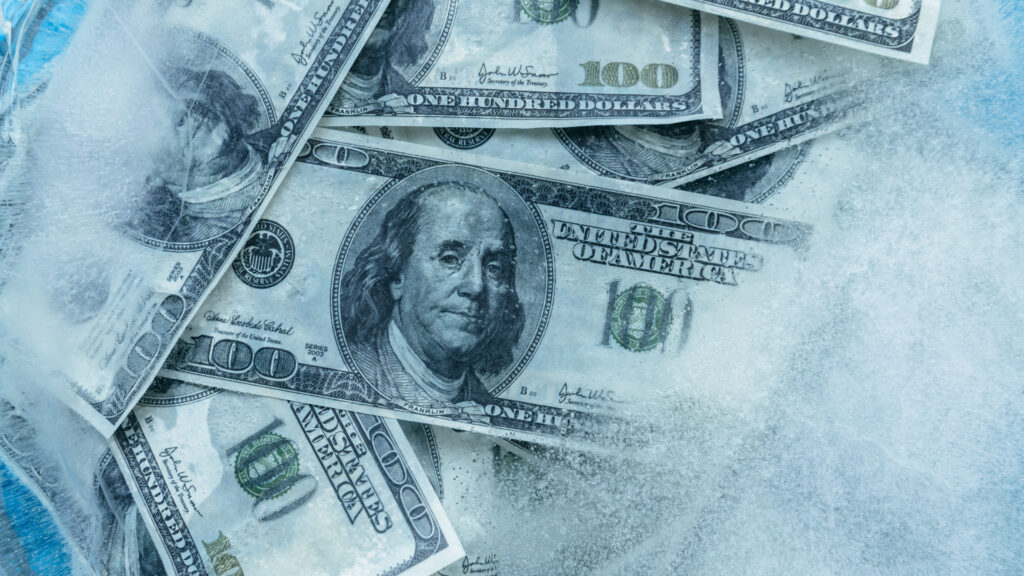When I read the recent news that the Trump administration has frozen all federally funded grants and loans to researchers like me, it felt like the ground beneath my feet gave way. My work, which investigates how to support the physical, social, and emotional wellbeing of people affected by cancer, is suddenly in limbo. And I know I’m not alone. Across the country, researchers whose work depends on federal funding are wondering if the projects to which they’ve dedicated their careers will come to an abrupt halt.
For me, like many, this is personal. In many of my studies, I work with young adults affected by cancer. Many of them lose friends, opportunities, and a sense of normalcy. One participant, a 32-year-old teacher, told me, “I don’t even know who I am anymore. Cancer took my health, my fertility … my plans for a family. I feel like I’m just existing.” Another participant once described how the isolation he endured during treatment was worse than the chemo itself, saying, “I’d sit in the hospital for hours, surrounded by people but feeling completely alone.”
advertisement
When people talk about curing cancer, they usually think of the next revolutionary drug or treatment protocol. And yes, those are critical. But we often forget that cancer is more than a medical condition — it’s a life condition. It uproots identities, shatters dreams, and isolates people from the world around them. That’s where my research lives, in what I think of as “the other Big Cs”: connection and community in the face of growing social isolation; communication with loved ones and health care professionals; compassion toward oneself and others; curiosity and contemplative cognizance in a dopamine-driven social media ecosystem; and coping, with the help of evidence-based strategies and tools.
Research like mine doesn’t usually get splashy headlines or billion-dollar investments. It’s funded through smaller federal grants — the kind that now hang in the balance. This Friday I was supposed to join 34 other academic researchers over Zoom at a long-planned NIH grant review meeting to discuss and score clinical trial proposals from our medical research peers. This meeting was indefinitely postponed, as were countless other similar review meetings, creating a funding backlog that prevents scientific discoveries and advances from happening.
As my cancer research colleagues and I saw the OMB memo this morning, to indefinitely freeze all federal grants and loans, there was confusion and panic throughout my inbox with questions like, “we are in the middle of a trial and next year’s funding is supposed to arrive in the next two weeks. Will we get our funds?”
advertisement
Without these grants, I can’t run programs that connect young cancer survivors with peers who understand their struggles. I can’t study how mindfulness can help patients manage anxiety or how connecting with nature can alleviate depression. I can’t explore new ways to ensure that cancer care isn’t just about surviving, but about living fully, with dignity, meaning, and purpose.
Pausing federal research funding doesn’t just put my career at risk — it threatens the progress we’ve made in understanding what it takes to truly support people affected by cancer and countless other medical conditions. And the timing couldn’t be worse. Not only are cancer incidence rates climbing for women and younger adults with different cancer types, but the Covid-19 pandemic showed us just how damaging social isolation can be, especially for vulnerable populations. If anything, we should be doubling down on research into the social and emotional aspects of health — not pausing.
To make matters worse, this freeze comes with no clear end date or explanation. It’s like being asked to run a marathon, only to have the course suddenly rerouted into a swamp. I’ve spent years building partnerships, designing studies, and earning the trust of participants and communities, only to find that the path forward is now murky at best.
So here I am, standing at a metaphorical intersection, wearing my navy-blue researcher suit and holding a cardboard sign that might as well read, “Will do cancer research for money.” It’s a desperate, absurd image, but it reflects the reality of what many of us in the research community are feeling and facing. We’re passionate about our work, committed to making a difference, and now, we’re stuck waiting for answers about whether we can even continue.
I understand the need for fiscal responsibility. I understand that the federal budget is complex and that tough decisions must be made. But holding the lifeblood of medical research ransom — without warning, without consultation — is shortsighted at best and incredibly harmful at worst. Ultimately, it will hurt the patients and communities we serve far more than researchers like me.
advertisement
When some people talk about their relationship to cancer, they sometimes use war metaphors like, “waging a battle,” “fighting a war,” or “in the fight of their life.” But wars aren’t won by one heroic action. They’re won through countless coordinated, collective efforts, big and small. My research might not seem like a big deal in the grand scheme of things, but for the cancer survivors I work with, it’s often the difference between feeling hopeless and feeling human.
And that’s why I’m speaking out. Because the Big Cs of connection, community, and compassion matter. Because cancer care isn’t just about curing a disease — it’s about caring for people. And because when you pause funding for research like mine, you’re not just pausing science — you’re pausing hope.
David Victorson, Ph.D., is a professor of medical social sciences at the Northwestern University Feinberg School of Medicine.

